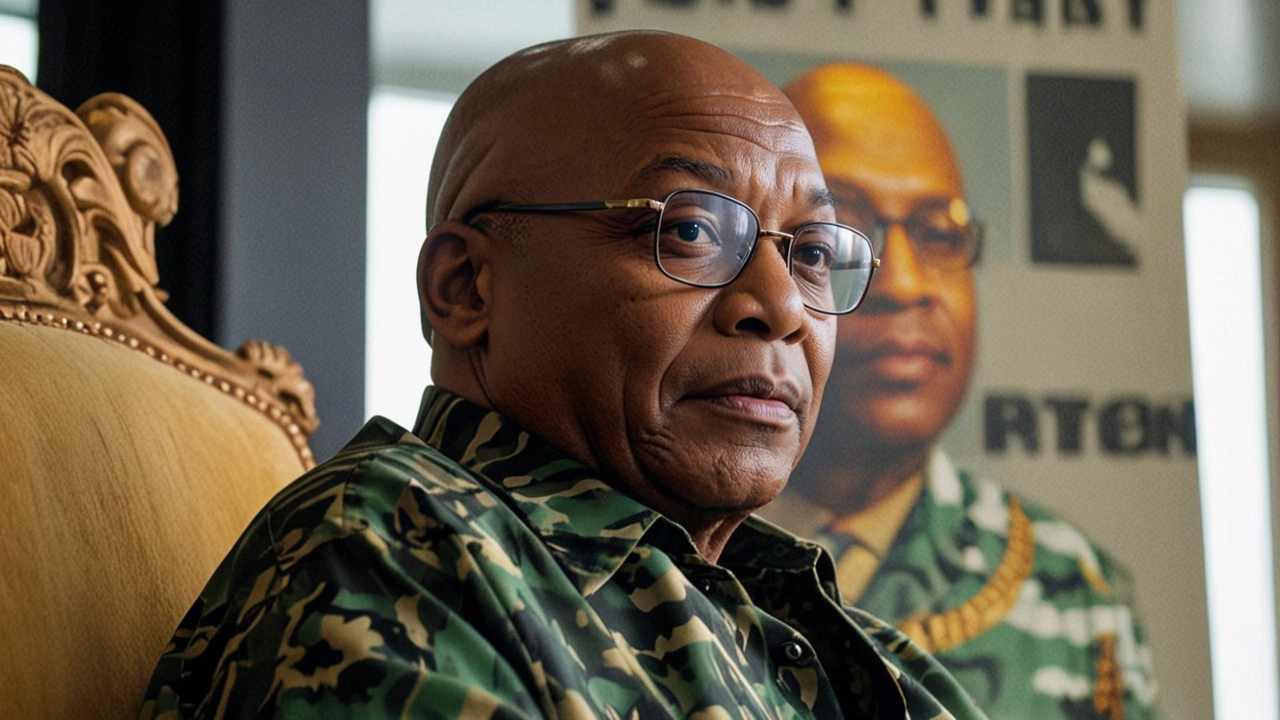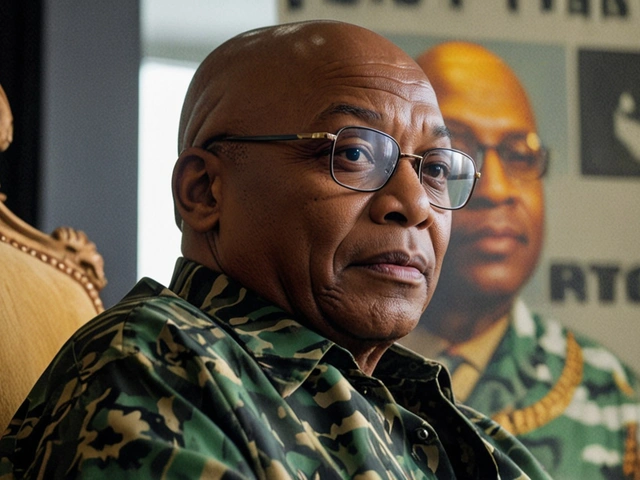Jacob Zuma Misses ANC Disciplinary Hearing: Virtual Session Postponed After Controversy
Jacob Zuma, the former president of the African National Congress (ANC) and South Africa, stirred the political landscape once again by failing to attend his virtual disciplinary hearing. This no-show was another chapter in Zuma's tumultuous relationship with the ANC, a party he once led but now finds himself in conflict with.
The Hearing and the No-Show
The disciplinary hearing was conducted virtually—an adaptation made necessary by logistical challenges and perhaps the ongoing pandemic. However, Zuma chose not to attend. Instead, his representative, Tony Yengeni, took the virtual stage alone. Yengeni, known for his own storied history within the ANC, informed the committee that Zuma preferred a physical hearing. The reason cited was straightforward: Zuma believed a face-to-face setting would be more appropriate to address the serious charges against him.
This request for a physical hearing wasn’t granted, but the ANC did decide to postpone the hearing to the following Tuesday. This decision came even as the disciplinary committee stood firm on maintaining the virtual format. The refusal to switch to a physical hearing underscores the ANC's push for operational flexibility while keeping safety and practicality in mind.
Zuma’s Persistent Ambitions
Jacob Zuma's current predicament stems from his decision to form and campaign for the MK Party. This move led to his suspension from the ANC. One would think that leading an opposition party would signify a clean break from the ANC, but Zuma’s actions and statements suggest otherwise. Despite his opposition leadership, he appears keen on retaining his ANC membership, a position that has caused significant friction.
Zuma's drive to remain within the ANC folds even while leading an opposing faction adds a layer of complexity. This dual allegiance raises questions about his end goals and whether this saga is part of a broader strategy to maintain influence within South Africa's political elite. One thing is clear—Zuma is not stepping away quietly.
Demands for Public Transparency
The request from Zuma and the MK Party to open the disciplinary hearing to the public and media was another point of contention. ANC spokesperson Zuko Godlimpi responded firmly, stating that neither the pre-hearing conference nor the actual disciplinary hearing would be accessible to the public or media. The decision aligns with the ANC's long-standing protocols around internal disciplinary matters, emphasizing confidentiality and procedural integrity.
This insistence on closed-door proceedings contrasts sharply with Zuma’s call for transparency. The public hearing demand may be seen by some as a tactical move to leverage public opinion, a common strategy for politicians under scrutiny. However, for the ANC, maintaining a controlled and private process appears paramount, particularly given the high-profile nature of the case.
The Road Ahead
While the hearing has been postponed, the urgency around resolving Zuma's status within the ANC remains. The committee has yet to announce a specific timeline for delivering a verdict. What's evident is that the arguments from both sides will be meticulously reviewed before any decisions are made. This deliberate pace signals the ANC's intention to handle the matter with due diligence, ensuring that any ruling is well-founded.
Jacob Zuma's relationship with the ANC has always been complex. From his rise to leadership to his numerous legal battles and now this disciplinary hearing, his political journey has been anything but straightforward. His latest maneuvering only adds to the narrative of a seasoned politician who continues to wield considerable influence and remains a central figure in South Africa’s political drama.
As the ANC prepares for the rescheduled hearing, all eyes in the political sphere will be watching closely. This incident is more than a mere procedural delay; it’s a reflection of the broader tensions and challenges within the ANC and South African politics. The outcome, whenever it comes, will likely have far-reaching implications.
Conclusion
The postponed hearing of Jacob Zuma marks another pivotal moment in South Africa's political landscape. With Tony Yengeni representing Zuma's interests and the ANC firm on its procedural stance, the coming days are sure to be filled with anticipation and speculation. Will Zuma's demand for a physical hearing succeed? How will the ANC manage internal dissent while upholding party protocols? These questions, among others, underscore the ongoing complexity of navigating political power and loyalty within the ANC.
As the process moves forward, it’s not just about one hearing or one individual. It’s about the broader dynamics at play in one of Africa’s most influential political parties. The developments will continue to capture attention, promising a gripping unfolding of events in the chapters ahead.



Leave a Comments